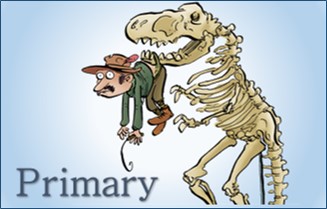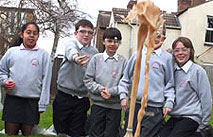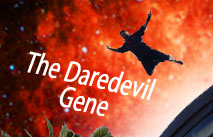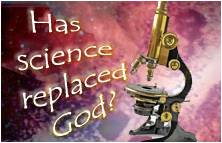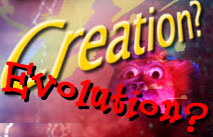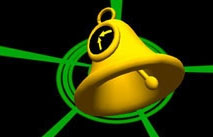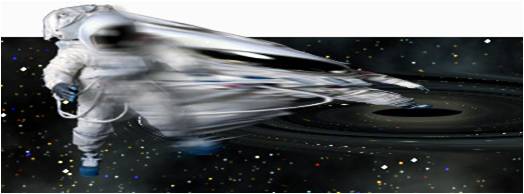September 2013 – Sheldonian Theatre Oxford
The mysterious workings of the adolescent brain (Professor Sarah-Jayne Blakemore – University College, London)
Why do teenagers seem so impulsive? Professor Sarah-Jayne Blakemore is a cognitive neuroscientist who looks at the links between brains and behaviour, focussing on the social brain – the network of brain regions involved in understanding other people. Prof Blakemore compares the prefrontal cortex in adolescents to that of adults, to show us how typically “teenage” behavior seems to be caused by the growing and developing brain.
Who do you think you are? (Professor Mark Pagel – University of Reading)
Professor Mark Pagel is a Professor of Evolutionary Biology at the University of Reading. He notes that when a human is compared – genetically – with some other species on our planet, the answer to the question of “What makes us uniquely human’, seems to be, ‘not a lot!’
Prof Pagel suggests two models to explain the relationship between science and religion. One is the seesaw principle – as one side goes up the other side goes down; every time science explains something – religion goes down and explains less. Another model, he says, is the principle of wonder. The more science explains the world, the more we appreciate the world. In that model, science and religion address different questions.
Do you believe that you have free will? (Professor Keith Ward – University of Oxford)
Professor Keith Ward takes on one of the most challenging questions of the day. Is human behaviour within the bounds of science to fully describe and predict, or is the future open to some extent – so that there are a number of possible outcomes of the same cause? In other words, can a future-thinking consciousness causally influence simpler purely physical properties of the brain and so in effect have ‘free will’?
Genetic Selection and Genetic Engineering – Can we make better humans? (Professor John Bryant – Bioethics Co-ordinator, Higher Education Academy)
Can we make better humans? – An exploration into this fascinating question.
The story of the day (Dr Matt Pritchard and Peter Casey – as Galileo)
Scientist and science communicator Dr Matt Pritchard will take you on a guided tour through some of the big ideas and questions that today’s sessions are exploring.
Theology and Neuroethics (Professor Neil Messer – University of Winchester)
Professor Neil Messer will discuss the emerging field of neuroethics – and some of the key questions that interest him as a theologian – such as; do the neurosciences require a re-appraisal of our approaches to ethical reasoning? How might we morally evaluate clinical interventions on the brain? In this talk, Professor Neil Messer will propose an approach to questions such as these, focusing in particular on the context of a Protestant Christian theological tradition.
What makes a robot a robot? (Dr Nick Hawes – University of Birmingham)
We will look at what makes a robot a robot, and, more importantly what it takes to create an autonomous (perhaps even intelligent) robot that can work in human environments. We will explore the problems of robot sensing, planning and action using the case study of a robot that can explore and search for household objects.
Neurons and Chips (Dr Martin Coath – University of Plymouth)
If we wanted to build a machine that really worked like a brain what would we need? Writing a computer program that just appears to work like a brain is difficult enough, we haven’t managed it yet. But the brain doesn’t run a program (as far as we know) so no conventional program will ever “work like a brain”. Brains use neurons, and machines that use artificial neurons are currently being built. This presentation is designed to give an insight in to how neurons, real and artificial, work.
Time and the Nature of Knowledge – (Denise Balmer – Geologist)
Geologist Denise Balmer explores the question of the age of the Earth and how we know, reflecting on epistemological questions – such as how many measurements do we need to take in order to be confident in science – and philosophical questions such as whether time should be properly understood as something subjective or objective or both.
Can robots learn to appreciate music? (Dr James Garnett – University of Reading)
We know that music follows rules; we know quite a lot about how music affects our brains; and we are able to build robots that respond to music and make music. However, the laws of music are not like the laws of nature. We can decide how music should sound; we can make the laws. This session explores what music can tell us about human values and human creativity.
All you need is science. Or is it? (Revd Mark Laynesmith – University of Reading)
A workshop exploring relationships between science, philosophy and faith
Cloning and the value of animal life (Jane Fieldsend – University of Reading, Laura Mason and Claire Morris, RSPCA)
What is the value of a human compared with the value of an animal from another animal species? How do you feel about cloning plants, animals … and humans? Have you ever eaten a cloned animal or plant … you may be surprised.
Exploring: Intelligent Robots, Cyborgs, Human Implantation & Robots with biological brains. (Professor Kevin Warwick – University of Reading)
Kevin will challenge your thinking and amaze you with this presentation!
